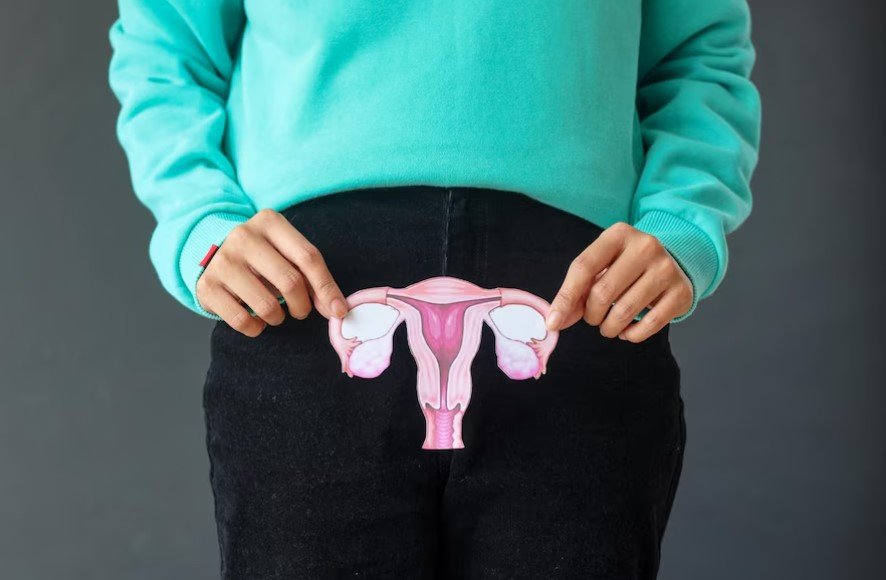Menstrual disorders encompass a variety of symptoms and conditions that affect a woman’s menstrual cycle and overall reproductive health. From heavy bleeding and irregular cycles to severe pain and hormonal imbalances, these disorders can significantly impact daily life. Effective management is essential for maintaining well-being and quality of life. Dr. Shweta Mendiratta is renowned as the Best Gynecologist in Faridabad, offering exceptional care and treatment for menstrual disorders.
Understanding Menstrual Disorders
Menstrual disorders include a range of issues related to the menstrual cycle, each presenting with unique symptoms and requiring specific treatment approaches. Common menstrual disorders include:
- Dysmenorrhea: Characterized by severe menstrual cramps and pain, dysmenorrhea can disrupt daily activities and affect quality of life. Pain may occur before or during menstruation and can vary in intensity.
- Menorrhagia: This condition involves excessive menstrual bleeding, either in terms of volume or duration. It can lead to anemia and fatigue and may be caused by hormonal imbalances, fibroids, or other underlying issues.
- Amenorrhea: The absence of menstruation, known as amenorrhea, can be primary (when menstruation never begins) or secondary (when periods stop after they have started). Causes can include hormonal imbalances, stress, or underlying medical conditions.
- Irregular Menstrual Cycles: Variability in cycle length and timing can be indicative of underlying hormonal imbalances or other health issues. Irregular cycles may affect fertility and overall menstrual health.
- Polycystic Ovary Syndrome (PCOS): PCOS is a common endocrine disorder that can cause irregular periods, heavy bleeding, and other symptoms. It is also associated with infertility and metabolic issues.
Diagnosing Menstrual Disorders
Accurate diagnosis is crucial for effective treatment. A comprehensive evaluation by a skilled gynecologist involves:
- Medical History and Symptom Assessment: Discussing menstrual patterns, pain levels, and any associated symptoms helps identify potential causes of the disorder.
- Physical Examination: A gynecological examination can reveal signs of underlying issues, such as uterine fibroids or pelvic inflammation.
- Imaging Studies: Ultrasounds or other imaging techniques may be used to visualize the reproductive organs and identify abnormalities that may be contributing to menstrual issues.
- Laboratory Tests: Blood tests can assess hormone levels and check for conditions such as anemia or thyroid dysfunction that may affect menstrual health.
- Endometrial Biopsy: In some cases, a biopsy of the uterine lining may be necessary to rule out or diagnose conditions like endometrial hyperplasia or cancer.
Effective Treatments for Menstrual Disorders
Treatment strategies for menstrual disorders are tailored to the specific condition and individual needs. Common treatment options include:
- Medications: Various medications can help manage menstrual disorders, including:
- Pain Relief: Nonsteroidal anti-inflammatory drugs (NSAIDs) such as ibuprofen can alleviate pain and cramping associated with dysmenorrhea.
- Hormonal Treatments: Birth control pills, hormonal patches, or intrauterine devices (IUDs) can regulate menstrual cycles and reduce symptoms like heavy bleeding and cramps.
- Iron Supplements: For menorrhagia-induced anemia, iron supplements may be prescribed to restore healthy blood levels.
- Lifestyle Modifications: Dietary changes, regular exercise, and stress management techniques can help alleviate symptoms and improve overall menstrual health.
- Surgical Interventions: In cases where medication and lifestyle changes are insufficient, surgical options may be considered:
- Endometrial Ablation: This procedure involves removing or destroying the uterine lining to reduce bleeding.
- Hysterectomy: In severe cases, removal of the uterus may be necessary to address chronic menstrual issues.
- Alternative Therapies: Some women find relief through alternative treatments such as acupuncture, herbal remedies, or physical therapy.
Why Choose Dr. Shweta Mendiratta
Dr. Shweta Mendiratta is recognized as the Best Gynecologist in Faridabad, offering expert care for menstrual disorders. Here’s why she is considered a leading choice for women seeking relief from menstrual issues:
- Expert Evaluation: Dr. Mendiratta conducts thorough assessments to accurately diagnose menstrual disorders and identify the most effective treatment options.
- Personalized Care: She provides individualized treatment plans tailored to each patient’s specific needs, ensuring comprehensive management of symptoms.
- Advanced Treatments: Utilizing the latest medical advancements, Dr. Mendiratta offers cutting-edge treatments and procedures to address a wide range of menstrual disorders.
- Compassionate Support: Known for her empathetic approach, Dr. Mendiratta prioritizes patient education and support throughout the treatment process.
Conclusion
Managing menstrual disorders requires a multifaceted approach that includes accurate diagnosis, effective treatment, and ongoing support. By understanding the symptoms and exploring various treatment options, women can find relief and improve their overall health. Dr. Shweta Mendiratta, recognized as the Top Gynaecologist in Faridabad, provides exceptional care for menstrual disorders, helping women navigate their symptoms and achieve better quality of life. If you’re searching for a Gynecologist near you, Dr. Shweta Mendiratta is a trusted choice for addressing menstrual health concerns with expertise and compassion.


